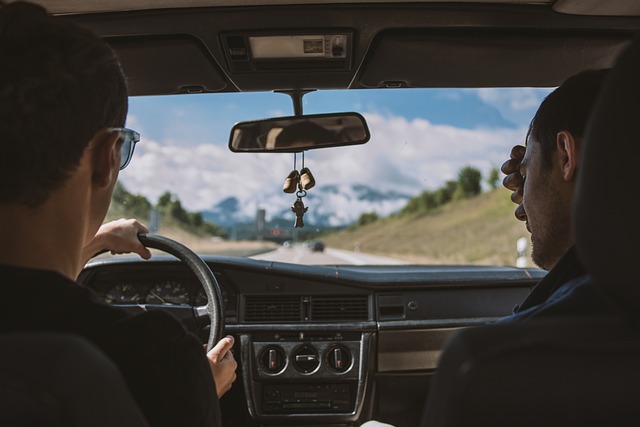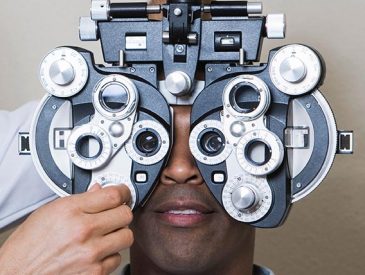When it comes to cataract surgery, potential patients are always attracted by problems related to treatment costs and recovery process. Considering this, I think I should use this article to answer a specific rehabilitation question that people seem to ask me again and again: Can You Drive After Cataract Surgery?
Can you drive after cataract surgery? Unfortunately, there is no definitive response. Generally speaking, you must wait at least 24 hours before you can drive. However, a number of variables will affect this.
After your surgery, your eye doctor will usually get you to come back the following day to examine your eyes post-surgery. At that point, they’ll usually give you instructions on how to take care of yourself.
Table of Contents
Driving After Cataract Surgery
You won’t be able to drive yourself home right away from cataract surgery because anesthesia is required. Instead, you’ll be handed over to a close friend or family member, who will need to take you home so you can rest the rest of the day. In the past, many people chose to take a cab home, but as a result of recent regulations, eye care facilities are now required to release patients into the care of a friend or relative. In order for the caregiver to remain with the patient and make sure there are no post-operative complications, regardless of how unlikely they may be, this is necessary.
24 hours after cataract surgery, the majority of patients can resume driving. This, however, is entirely dependent on the particular patient. You will go back to your surgeon’s office for a follow-up appointment the day following your surgery. When it is safe for you to resume driving and engaging in other routine activities, they will assess your vision.
It is crucial that you wait until your doctor has given you the all-clear because some patients recover more quickly than others. It’s possible that, out of caution, your doctor advises delaying getting behind the wheel for a little bit longer. This is why you ought to arrange for a loved one to drive you to and from your follow-up appointment. Be aware that to promote healing after surgery, you might need to wear an eye shield for a few days. Your vision might not also fully stabilize for a week. During your in-person consultation, your eye doctors will talk about these factors and how they might affect your ability to drive.
What is a Cataract?
Let’s start with an explanation of what a cataract is so that you can fully comprehend why you can’t drive right away and why it can take several days to heal.
Though it should be clear, your eye’s lens occasionally becomes cloudy. At first, you might not even notice it, and even then, it might not need medical attention right away. The cataract, however, makes your vision hazy and interferes with daily life when it becomes excessively cloudy.
Your eyes won’t be harmed by cataracts in and of themselves. It’s time to see an ophthalmologist, though, when they begin to affect your daily activities.

What Happens During Cataract Surgery
Because cataract surgery is an outpatient procedure, you will stay awake during the procedure. Most of the time, it takes an hour from beginning to end. A local anesthetic injection around the eye or numbing eye drops may be administered to you.
The size of the incisions the eye doctor must make depends on the type of surgery you receive. Frequently, they can make cuts that don’t need stitches. Once they’ve made the incision, they remove your cloudy lens by various methods.
Once they remove the lens, they replace it with a synthetic one. Results produced by various lenses vary. Before the procedure, you will discuss all your options with your ophthalmologist.
If necessary, stitches will be applied after the new lens is in. If not, you’re done and the doctor can let whoever is giving you a ride home.
Cataract Surgery Aftercare
It’s critical to adhere to the ophthalmologist’s aftercare instructions to the letter. It’s not risk-free just because it’s a quick and routine procedure. The majority of risks associated with cataract surgery are manageable, but with the right aftercare, the risks are typically reduced.
Any discomfort should go away within a few days as long as you’re following the eye doctor’s instructions and taking any medication they have prescribed for you. There are a few potential complications to be aware of and contact the ophthalmologist immediately if they occur:
- Loss of vision
- Persistent discomfort (after using over-the-counter medication)
- Eyelid swelling or increased redness
- Flashing light or new floaters in your field of vision
What to Do When Cataracts Affect Your Life
Despite the fact that you may have cataracts, surgery is not always necessary. Your vision can occasionally be corrected to some extent by glasses or contacts. However, if cataracts are affecting your life, contact us today. The friendly staff at Center For Sight will be happy to arrange for you to have an ophthalmologist consultation.
Read about Can You Drive With Dilated Eyes?
Conclusion
Your surgeon will check on your recovery and conduct a vision test the day following your procedure. Usually, vision gets significantly better right away after surgery. For driving, you should be able to do so no later than 24 hours after the incident, but you are strongly advised to wait for your doctor to confirm this based on your follow-up exam. Everyone responds to cataract surgery differently, so some patients may recover faster than others. To be safe, your doctor might suggest that you put off driving for longer. This means that you should arrange for a driver to pick you up at least twice: once after surgery to take you home, and again the next day for your follow-up appointment.
As more than 3 million surgeries are performed annually in the U.S., keep in mind that cataract surgery has established itself as a very secure and beneficial restorative procedure. alone. Recovery frequently takes 15 minutes or less and is trouble-free. Following surgery, you might be required to wear an eye shield for a few days, and it might take a week or so for your vision to fully recover. Consult your eye doctor right away if you have any queries or worries.





